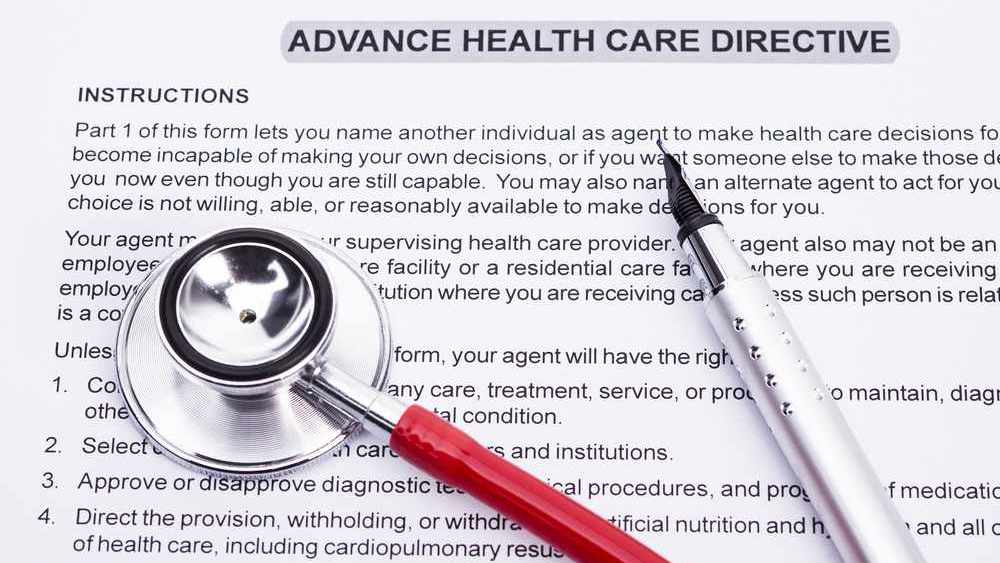-
Mayo Clinic Q and A: Advance-Care Planning Is More Than Just Filling Out a Form

DEAR MAYO CLINIC: Is it really necessary to have an advance directive if I have already named a medical power of attorney? My doctor asks me about it every time I have an appointment, even though I have already told him I’m not interested.
ANSWER: Developing an advance directive is just one part of the advance care planning process. In this process, you look at your goals and values, and express your preferences for certain types of medical care based on those goals and values. It’s a process you should work through with the people you trust: your family, friends and medical providers.
Advance-care planning is more than just filling out a form. But, developing an advance directive form is an effective way to make your end-of-life care preferences known. In general, your directive may do one or both of the following: name your health care agent or medical power of attorney, and provide specific information about your health care choices. Your directive is not activated unless you are unable to make decisions for yourself.
By naming a medical power of attorney, you’ve already taken an excellent first step in planning your health care. When you name someone to serve as your medical power of attorney, you authorize that person to make decisions for you when you are unable to do so. In some states, this directive also may be called a durable power of attorney for health care or a health care proxy. The person you name may be a spouse, other family member, friend or member of a faith community, among others.
In many situations, naming a medical power of attorney isn’t enough. To help guide that individual, take time to put your thoughts and preferences on paper by filling out a living will. A living will serves as an excellent resource for your health care team. It usually covers end-of-life care in detail, spelling out the types of medical treatments and life-sustaining measures you want and don’t want, such as mechanical breathing, tube feeding or emergency resuscitation.
It can be hard to cover every possible circumstance in a living will. That’s why it’s important to discuss your goals and values with your medical power of attorney and your loved ones. They can then use those conversations and your living will as guides if they ever need to make medical decisions for you.
Although they are extremely helpful to have in many medical circumstances, about two-thirds of adults in the U.S. have not created an advance directive. Many people don’t do so, because they assume their spouse, children or other family members already know what they want. But, it is very difficult for your loved ones to clearly understand and follow through on your preferences if you have not specifically spelled them out.
At some point, nearly three-quarters of all people will be in a medical situation where they cannot communicate their wishes to their health care providers. Having a living will, as well as a medical power of attorney, can provide clear instructions to your health care team about what you do and do not want in those situations.
To create a legal advance directive, check the requirements in your state, as they differ somewhat among states. Health care organizations often have the forms available, so you can ask your doctor’s office or hospital for the forms you need.
When you make thoughtful choices about your medical care preferences, talk about these preferences, and document them in a living will, you not only help to ensure you get the care you want, you take stress and guilt off the people who are closest to you if they ever need to make tough medical decisions for you. It is a gift you give yourself, as well as your loved ones.
— Dr. Ericka Tung, Primary Care Internal Medicine, Mayo Clinic, Rochester, Minnesota







